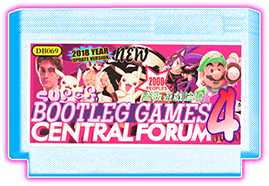1
Pirate Talk / Re: JungleTac and the V.Smile
« on: October 10, 2025, 04:58:48 PM »
Unearthed the LinkedIn profile of someone who did software development at VTech's Shenzhen branch that I found a while ago and considered of interest in relation to the V.Smile: https://cn.linkedin.com/in/%E5%B3%B0-%E5%91%A8-79a216119. Note that the link might not work for everyone due to LinkedIn shenanigans forcing people to register for an account for unfettered access to the website (especially if viewing pages on the site more than once without an account). From the VTech section of the LinkedIn profile:
Not only does the profile mention this person developing for the Sunplus SPG200, which was used in the V.Smile (the only real 2D video game device VTech released next to a Dora plug and play using similar Sunplus SPG technology to my knowledge), but it also lists the "LSI ZEVIO" alongside it, which is only known to have been used by VTech for their V.Flash console. The listing doesn't provide enough information to make it clear if the person directly worked on the V.Smile games, but given the provided time frame and mentioned responsibilities (notably the "New comer training" bullet point), I think it's safe to assume that they at least had a hand in the development process of V.Smile games directly at VTech and that by extension, VTech had some involvement with the software development side of the V.Smile and its games (at the very least, common software libraries shared among the games). Still no updates on anything further cementing JungleTac's involvement with the system, though.
Quote
Software Engineer
伟易达
Aug 2004 - Jul 2007 3 years
Shenzhen
TV Game(2D/3D) Develop
Language: C/C++
Complier: VC.net, GCC, Sunplus IDE
MCU: LSI ZEVIO (ARM9), Sunplus SPG200 (16 bit MCU)
Resposibility:
* Software module devide, Common Module design/coding/debug
* Schedule follow up, Design Review, Code Review
* New comer training
Not only does the profile mention this person developing for the Sunplus SPG200, which was used in the V.Smile (the only real 2D video game device VTech released next to a Dora plug and play using similar Sunplus SPG technology to my knowledge), but it also lists the "LSI ZEVIO" alongside it, which is only known to have been used by VTech for their V.Flash console. The listing doesn't provide enough information to make it clear if the person directly worked on the V.Smile games, but given the provided time frame and mentioned responsibilities (notably the "New comer training" bullet point), I think it's safe to assume that they at least had a hand in the development process of V.Smile games directly at VTech and that by extension, VTech had some involvement with the software development side of the V.Smile and its games (at the very least, common software libraries shared among the games). Still no updates on anything further cementing JungleTac's involvement with the system, though.








